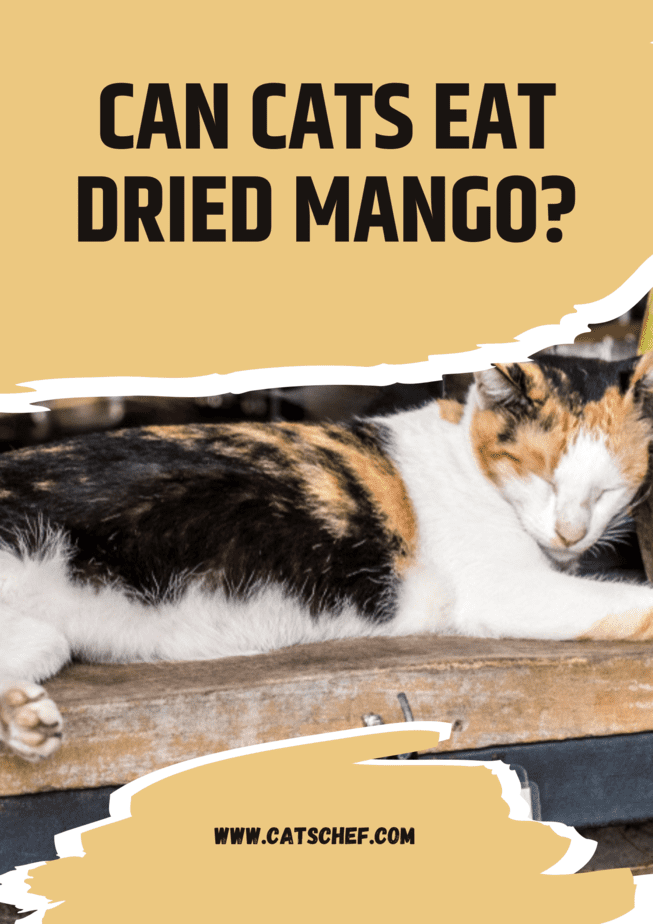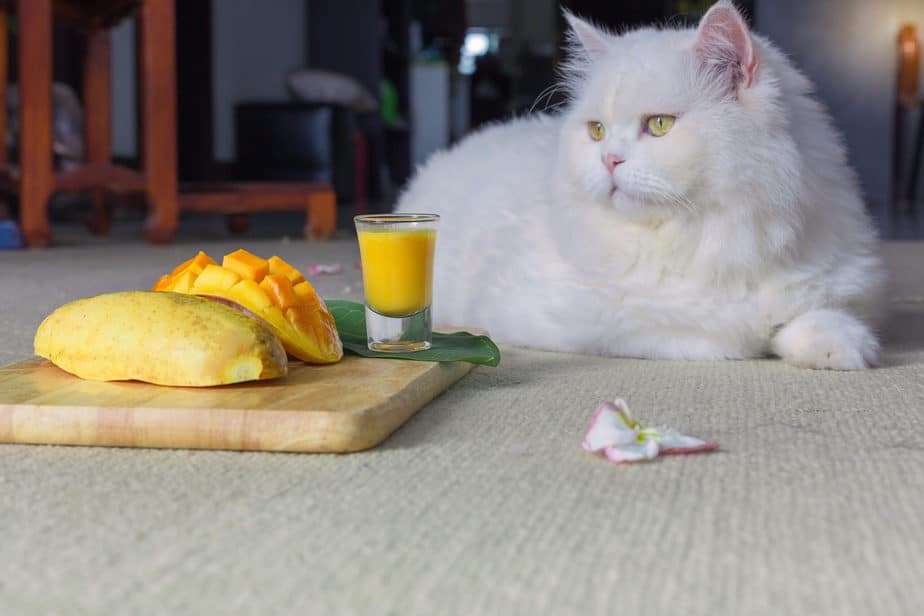It’s such a delight to have mango around for consumption, whether it be fresh or dried. Especially so if you’re looking for alternatives to junk food and late-night snacks. But, can cats eat dried mango so you can munch down on it together?
Mango is a great choice as it’s natural and provides many health benefits. Its vibrant color is enough to attract humans, let alone cats. The good news is that you can turn on your favorite show with your furball in your lap and happily snack away on some dried mango pieces.
Firstly, can cats eat fresh mango?
Yes, cats can safely eat fresh mangoes. This fruit isn’t toxic to felines and there is no need to worry if you find your cat sampling it. They provide humans with much-needed vitamins and minerals, and the same goes for cats.
Fresh fruit, including mango, is a great way to cool down on a hot summer’s day. You can make a fruit salad out of some bananas, apples, and mangoes for your cat to refresh and rehydrate. It’s a great way of introducing some fruits in her diet that can benefit her health.
Do cats like mango?
We know cats are picky-eaters and will rather starve than eat something their nose doesn’t approve of. However, this isn’t the case with these juicy fruits. The fresh, flavorful smell of mango usually entices felines and their sense of smell.
Apart from the interesting scent, shape, and color, your four-legged companion often just wants to try whatever it is you’re eating. You know cats are curious and if they set their minds on something, they better have their way.
Can cats eat dried mango?
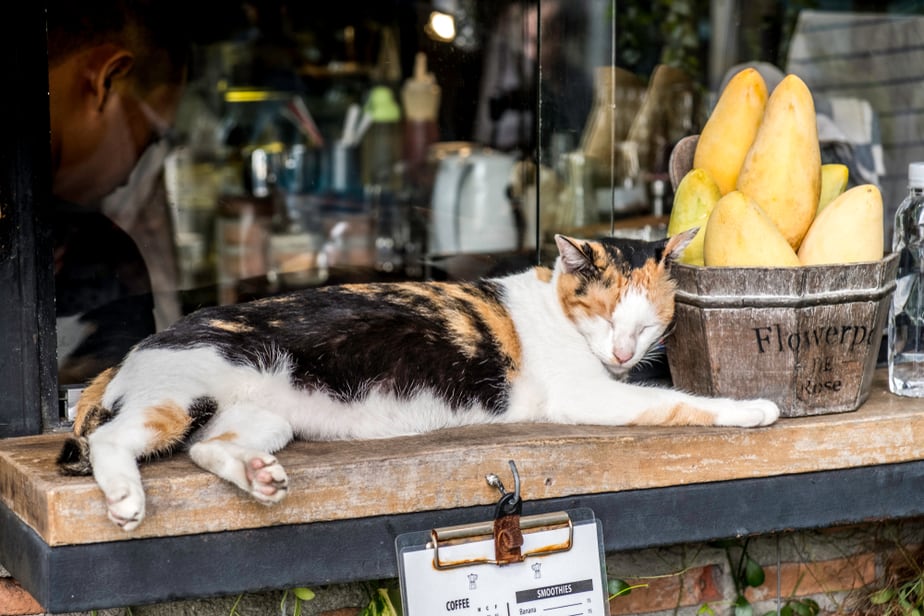
Yes, cats can eat dried mango as it isn’t poisonous. But although it’s still a better snack than junk food, it’s less healthy than fresh mango. Dried mango has higher sugar concentrations and, depending on where you source it, can contain some artificial compounds.
Preservatives and chemicals that are used in the process of making dried mango can be harmful to felines. The same compounds that humans can digest safely may be a potential health hazard to cats.
Therefore, it’s better to size down the amount of these snacks and rather only offer it occasionally. Fresh mango is a better and safer option.
If you just can’t resist your cat’s doe eyes, opt for some homemade dried mango. There are lots of DIYs on how to make dried mango yourself. That way, you will ensure there are no artificial flavors and other unknown ingredients.
Health benefits of mango
We all know that cats are obligate carnivores, which means they rely on eating meat for survival. Out in the wild, you will never see a cat harvesting fruits from trees, but rather hunting down smaller prey. They are, after all, prey-driven, and their instincts tell them what to do.
The reason meat is a necessity for felines is protein. Animal-derived protein is the main source of their energy and helps with their body functions.
With this in mind, you probably don’t want to overfeed your cat with fruits like mango. Even though these juicy fruits can be beneficial to your feline’s health, they still can’t and shouldn’t replace a carnivore’s standard meat-based diet. Having established this, let’s see the potential benefits of cats eating fresh and dried mango.
Vitamins
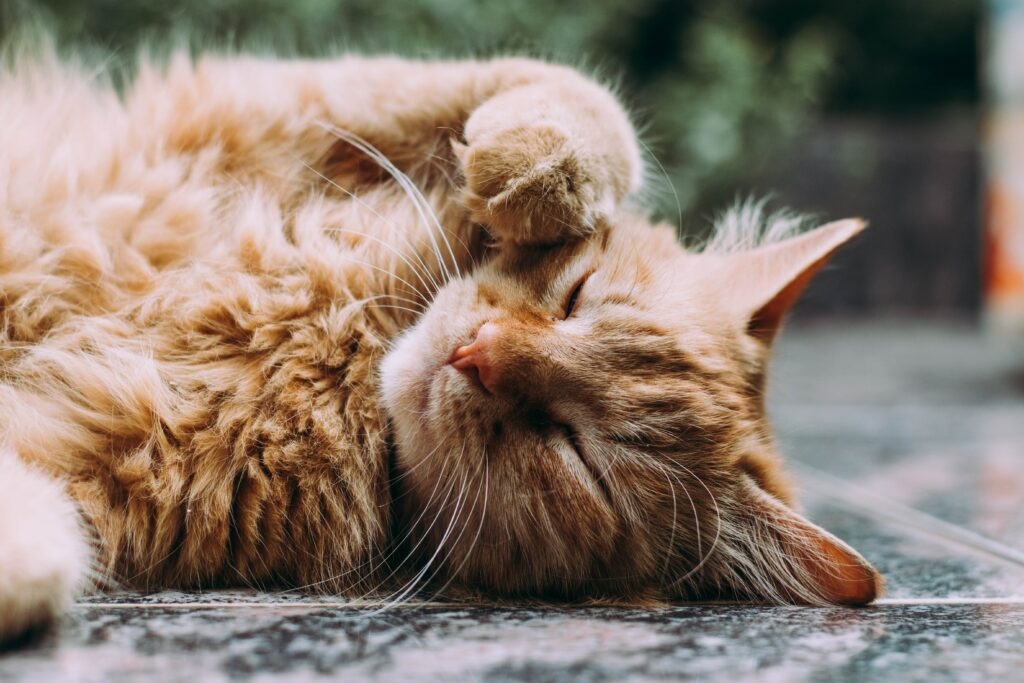
Mango is a great source of vitamins A and C. We know cats are nocturnal creatures and they need their vision to function properly. Vitamin A helps improve vision and can actually prevent some impairment.
There’s plenty of vitamin C in mango as well. However, unlike humans, cats produce vitamin C on their own. Their vitamin C comes from their livers and while self-sufficient, more of this health supplement can’t hurt. It helps with tissue growth and immune regulation.
Mango also contains vitamin K, which aids in blood clotting and coagulation, and vitamin E, which helps to keep your cat’s skin healthy and moisturized.
Keeps your cat hydrated
Fruit is an excellent source of water. Many cats owners have the problem of their pets avoiding drinking water, which can lead to some health issues.
Constipation, excess shedding, and dandruff are all signs of dehydration in cats. To avoid these, people constantly opt for some expensive water fountains and regular vet checks.
Mango is a great source of water and a few slices will keep your cat healthy and hydrated. On hot, humid days, you can even cut some mango into cubes and freeze them. That way you get healthy cat treats, your cat gets to have some fun, and she will stay hydrated in the heat.
Mango is packed with minerals
Minerals are essential to keep our cat’s health optimal. Some of these crucial health supplements can be found in fresh and dried mango, like potassium. This mineral helps out with different body functions and lowers blood pressure. It can prevent kidney failure and reduce inflammation of the heart, just like magnesium.
Dietary fiber
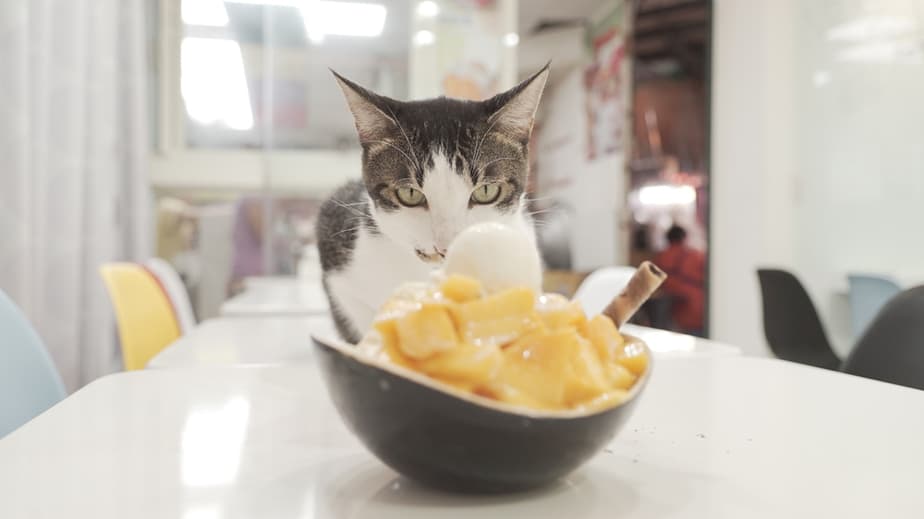
The amount of fiber found in this fruit can benefit your cat’s health. If she’s experiencing some constipation issues, worry not. A few slices or cubes of mango will solve the problem by helping break down difficult materials, such as plant-based ones.
Source of antioxidants
Antioxidants are chemicals that help your body combat free radicals. Free radicals are substances that might harm your body if their quantities are too high. They cause cell damage and have been connected to a variety of diseases, including diabetes, heart disease, and cancer.
Fruits, such as mango, are high in antioxidants. Beta-carotene, an antioxidant that fights free radicals, gives the mango its yellow-orange hue.
What are the downsides of fresh and dried mango?
The biggest issue with mango and other fruits is their high sugar content. Too much of this carbohydrate can quickly lead to weight gain and other health issues. It can also increase the risk of tooth decay, which is another issue that many cats face.
Sugar is also redundant because cats cannot taste sweet foods. In many treats, they are attracted to the fat content, rather than sweetness.
Can cats eat the skin and pit of a mango?
“Can cats eat dried mango? Or can they eat the skin and pit of a mango?”
These parts of this fruit can be dangerous to felines. Mango skins and pits can be toxic to cats because they contain a compound called cyanide. And apart from being toxic, the pit presents a choking hazard to cats.
Therefore, be sure to first remove these parts before offering your cat mango.
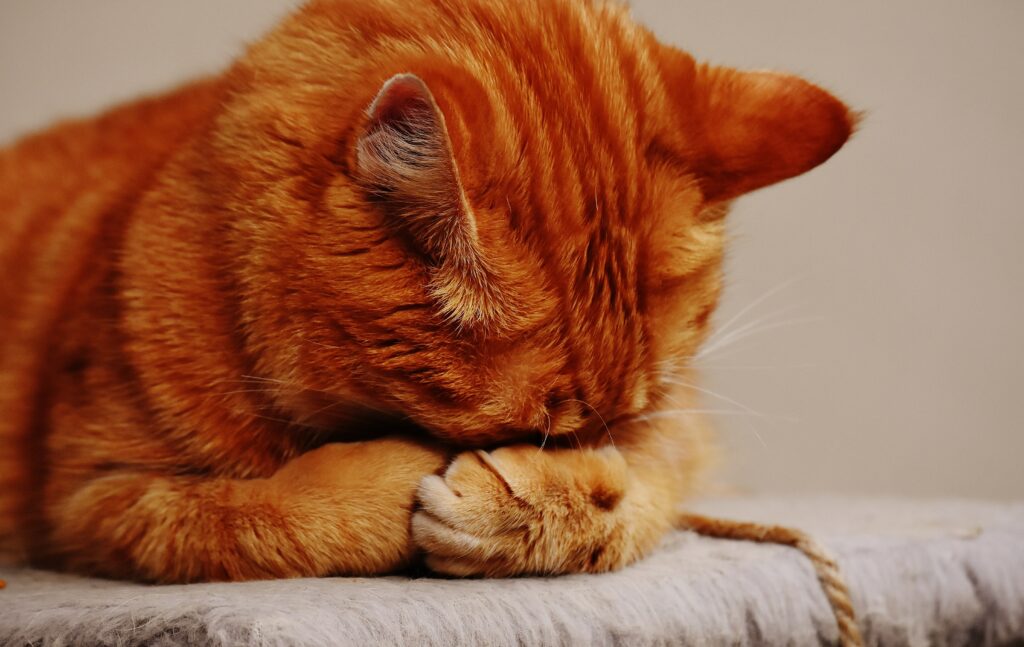
To sum up whether cats can eat dried mango
Felines are carnivores and rely solely on meat for nutrients. However, both fresh and dried mango can serve as an occasional snack. This fruit as an infrequent addition to your cat’s diet can be beneficial for her health.
Mango is a great source of vitamins, minerals, dietary fiber, and antioxidants. Fresh mango is even recommended as it can help keep your pet hydrated. However, beware of the skin and pit of this fruit as it’s poisonous to felines.
Dried mango is higher in sugar and can contain some artificial compounds, which are not good for your cat. Excess amounts of sugar can lead to some medical issues including dental problems, diabetes, and obesity.
Like with some other dried treats such as dried anchovies, if given in small quantities, dried mango can be safe for cats to eat and a great alternative to unhealthy “human” foods.
See more: Can Cats Eat Papaya? Everything You Need To Know About This Fruit!
